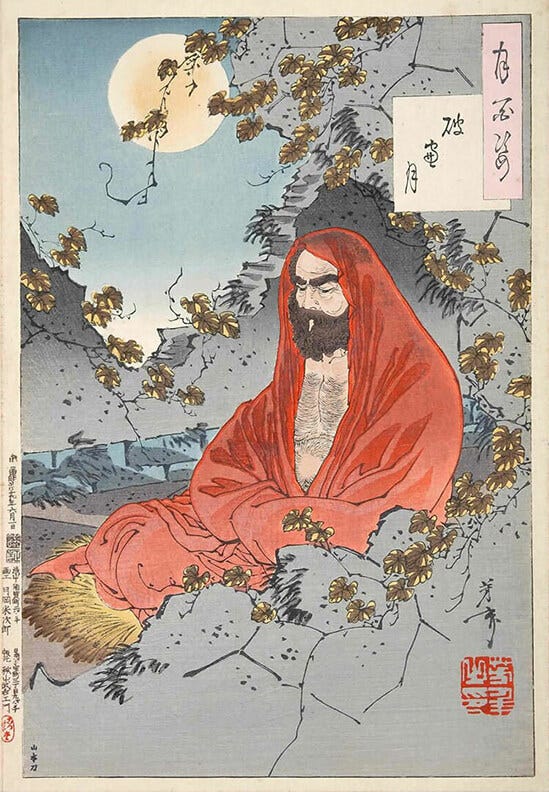
The other day I had a critique of one of my book manuscripts that I found very difficult to deal with. I won’t go into the details but I found an editor’s assessment (not even addressed to me but forwarded by someone else with the editor’s agreement) full of assumptions about who I am. So on top of the struggle not to be defensive about my work, I felt the injustice of having been wrongly summed-up by a complete stranger. Oddly, this was not a rejection in the normal sense of a ‘Dear John’ letter (more an ‘improve this and I might consider it’ letter), but it upset me a great deal - in fact, I had to force myself to go back to my desk and carry on writing.
Unfortunately, criticism and rejection are common features of writing professionally and they hurt. We have a right to our feelings but it’s important not to let these experiences get too much into our heads. Whenever feedback is involved, it’s a potential gift because it helps us to see our work from a reader’s perspective. But that’s still only one reader, and there will always be people who will dislike your work because you can’t please everyone. In the above instance, I found it helpful to separate out the feedback itself, which contained some valid points, and the delivery, which was careless and disrespectful. What I was really facing was a question of working style, and it was clearly not a good fit for me.
But what about having book pitches rejected? This is also a common experience which, frankly, sucks. I have developed a hatred of glib observations such as “J. K. Rowling had her book rejected by 12 publishers”. (My response to this is: “What, only 12?”) But again, there are benefits to be had from these rejections. For all the people who have ghosted me or acted carelessly, I’ve been blessed with constructive feedback from generous, kind people. I’m not sure why publishing has undergone such radical changes recently - probably due to a myriad of reasons ranging from new technology to the pandemic - but we need more of these people handling work by new writers.
But back to the nitty gritty. How do you keep going when you’re getting repeatedly knocked down? I’m not usually a Zen type, but I came across a great motto the other day: “To fall seven times and get up eight” (“Nanakorobi Yaoki”). This phrase is associated with the round figures of Daruma (Bodhidarma), the Buddhist monk whose nine-year meditation led to the withering of his arms and legs. Obviously, it’s a mantra about the persistence, grit and courage needed to fulfil your goals. On looking into Daruma, I discovered that the Japanese often give Daruma dolls as presents (I gave one to my niece who is starting university). They generally come with blank eyes - you decide on your goal and then you take some ink and paint a pupil into one eye; when you have achieved it, you can paint the pupil in the other eye (it doesn’t matter which eye is painted first but it’s often the left one). If you don’t achieve your goal you can burn the doll at the end of the year: a little bit brutal, you might think, but no, this is just a purification ritual which means you can start again.
I like this way of thinking. In fact, I liked it so much that I obtained my own Daruma doll and added it to the Household Gods in our office (more about them here). My Daruma is a traditional papier-mâché one in red (for luck) and its round shape means that even if it’s knocked over, it rolls back up again.
This rolling back up again is difficult but vital. It’s important to remember that the rejections often come, not because the work is worthless, but because it isn’t ready yet. There are very few people out there who - like Shakespeare - can write a great work while scarcely blotting a line. In fact, even this assessment (by his fellow players John Hemings and Henry Condell) is probably an exaggeration - Shakespeare’s early works have none of the perfections of the later masterpieces. This should give us all hope. You need to grant yourself permission to write scrappily and make mistakes, and you can’t do that if you fear rejection. Quantity is important because it leads to quality (via the editing process).
If you’re interested in the idea of talent and its partner skill, editing, I recommend reading this excellent post by George Saunders, whom I regard as the patron saint of supportive writerly advice (his notion that good writing is made up of choices is both liberating and generous). There is also a post by the brilliant Jane Friedman (How Long Should You Keep Trying to Get Published?) which also contains some excellent advice. And remember: like the Buddhist monk who wouldn’t quit, we’ll just keeping rolling back up again because, while we’re unlikely to regret persisting, we will almost certainly regret giving up.






Have been using Daruma dolls as motivation and goalkeeping for 25 years - glad to meet another fan!